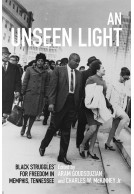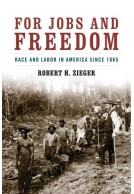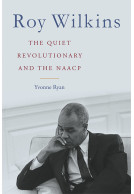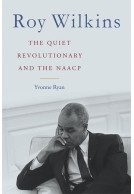Google Books previews are unavailable because you have chosen to turn off third party cookies for enhanced content. Visit our cookies page to review your cookie settings.
John Hervey Wheeler, Black Banking, and the Economic Struggle for Civil Rights (Paperback)
Imprint: University Press of Kentucky
Series: Civil Rights and the Struggle for Black Equality in the Twentieth Century
Pages: 354
Illustrations: 31 b&w halftones
ISBN: 9780813196091
Published: 2nd August 2022
Script Academic & Professional
Series: Civil Rights and the Struggle for Black Equality in the Twentieth Century
Pages: 354
Illustrations: 31 b&w halftones
ISBN: 9780813196091
Published: 2nd August 2022
Script Academic & Professional
This book will be reprinted and your order will be released in due course.
You'll be £27.00 closer to your next £10.00 credit when you purchase John Hervey Wheeler, Black Banking, and the Economic Struggle for Civil Rights. What's this?
+£4.99 UK Delivery or free UK delivery if order is over £40
(click here for international delivery rates)
Need a currency converter? Check XE.com for live rates
(click here for international delivery rates)
Need a currency converter? Check XE.com for live rates
John Hervey Wheeler (1908–1978) was one of the civil rights movement's most influential leaders. In articulating a bold vision of regional prosperity grounded in full citizenship and economic power for African Americans, this banker, lawyer, and visionary would play a key role in the fight for racial and economic equality throughout North Carolina.
Utilizing previously unexamined sources from the John Hervey Wheeler Collection at the Atlanta University Center Robert W. Woodruff Library, this biography explores the black freedom struggle through the life of North Carolina's most influential black power broker. After graduating from Morehouse College, Wheeler returned to Durham and began a decades-long career at Mechanics and Farmers (M&F) Bank. He started as a teller and rose to become bank president in 1952. In 1961, President Kennedy appointed Wheeler to the President's Committee on Equal Employment Opportunity, a position in which he championed equal rights for African Americans and worked with Vice President Johnson to draft civil rights legislation. One of the first blacks to attain a high position in the state's Democratic Party, Wheeler became the state party's treasurer in 1968, and then its financial director.
Wheeler urged North Carolina's white financial advisors to steer the region toward the end of Jim Crow segregation for economic reasons. Straddling the line between confrontation and negotiation, Wheeler pushed for increased economic opportunity for African Americans while reminding the white South that its future was linked to the plight of black southerners.
Other titles in the series...
Other titles in University Press of Kentucky...





















